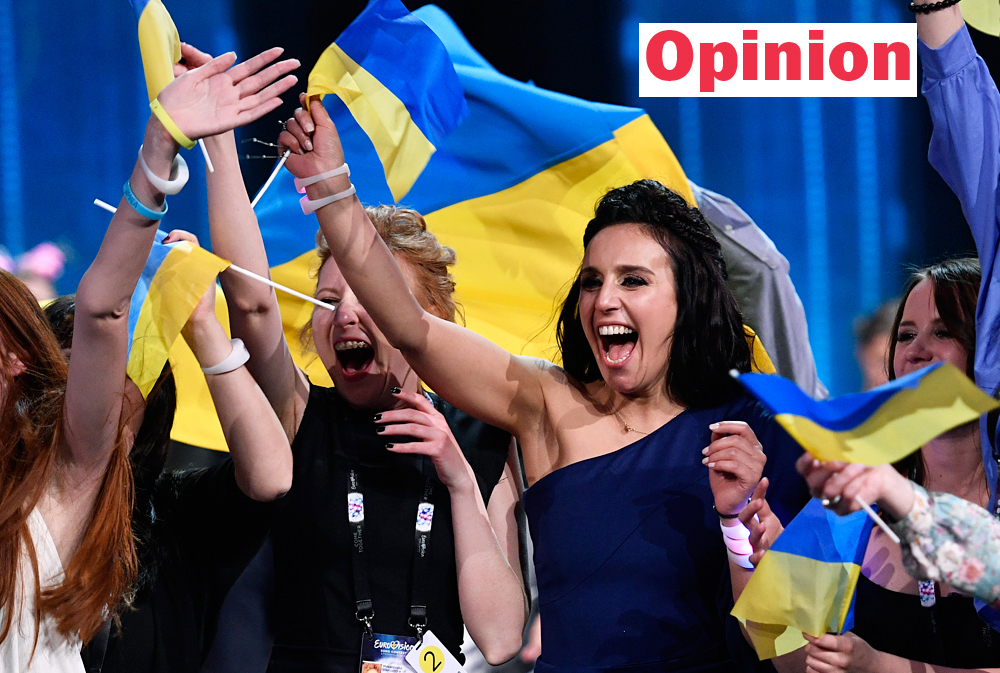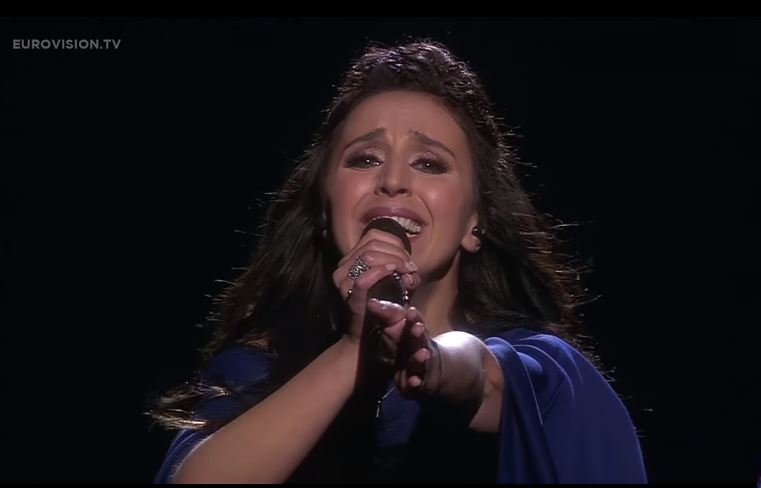Eurovision meets its Waterloo as Russia-Ukraine rivalry takes center stage

Ukraine's Jamala celebrates as she wins the Eurovision Song Contest final with her song '1944' in Stockholm, Sweden, May 15, 2016.
APIn many respects, Jamala’s politically charged victory at this year’s Eurovision song contest on May 14 bodes ill for the future of the event. Since its inauguration in 1956, the competition has earnestly avoided social commentary. For instance, there have been no Bosnian songs about genocide or Irish ditties about British oppression. Nor have we seen Israelis crooning about the Holocaust or Cypriots taking aim at Turkey.
Yet an analysis of this year’s voting patterns suggests that the current political distrust between Kiev and Moscow is largely restricted to both country’s elites. While national juries, nominated by state TV, showed no love to their rivals, the Russian public gave Ukraine 10 points, second only to Armenia. Meanwhile, Ukrainian voters handed a maximum 12 to Russia.
This contradicts the media and government narrative in Kiev of a permanent estrangement between the two countries. It also weakens some Russian chronicles of militant Russophobia in Ukraine.
In the end, this year’s Eurovision became something of a repeat of the 2000 American presidential election. Like Al Gore, Russia won the popular vote. Yet, Ukraine pulled a George Bush and claimed victory on the delegate count. All we were missing were some hanging chads.
Together again
Coming so soon after Russia’s annexation of/reunification with (delete according to prejudice) Crimea, the ethnic background of the winner filled the headlines. Jamala is half Crimean Tatar and half Armenian. She was born in Kyrgyzstan. Yet she evidently identifies as Ukrainian. Her winning song, “1944,” was about a vicious deportation launched by a Georgian, who controlled a state of which Russia was the largest constituent part.
Jamala herself has admitted “1944” is something of a protest against Russian rule in Crimea. That said, her dislike of Russia obviously doesn't cut too deep. On New Year's Eve 2015, she was more than happy to perform at a club in Russia’s Black Sea resort of Sochi.
If this sounds very complicated, it’s because history in the former USSR and Eastern Bloc can be a very messy business. And ideals and loyalties are rarely black and white. For a Crimean Tatar, 1944 is their “zero hour” as it represents when Stalin scattered their forefathers to the wind.
Yet for many Poles, for example, 1944 sparks recollections of Soviet indifference in the face of the Warsaw uprising that year, when the Red Army stood by and watched as the Nazis crushed the rebellion. Some other Polish people, meanwhile, remember 1944 for the massacres in Volhynia and Eastern Galicia (present-day Western Ukraine), when at least 100,000 Poles were slaughtered by Ukrainian nationalists. Their leader, Stepan Bandera, is now regarded as a national hero by the post-Maidan regime in Kiev.
Different vibes
At the same time, for an American or Brit, 1944 invokes thoughts of the D-Day landings. The French associate the year with the liberation of Paris. Meanwhile, Russians know that 1944 was the year when the last Nazi troops were removed from Soviet soil.
In Stockholm, the home of ABBA, Eurovision may have met its Waterloo. Now that politics have been allowed into the equation, the competition may eat itself. What’s to stop Ireland from entering a “rebel song” next year commemorating the famine under British rule, seen by some historians as genocide? Or who could now object if Russia showed up in Kiev with a ballad addressing the 2014 Odessa fire – which may have been an organized massacre?
Jamala wasn’t the public’s choice. It’s pretty clear that national juries, across Europe, supported her in order to show some solidarity to Ukraine. Once upon a time, Eurovision’s biggest headache was keeping Johnny Logan’s white suit clean, now the organisers have a new can of worms to deal with. Politics is suddenly in play.
Bryan MacDonald is a Moscow-based commentator.
The opinion of the writer may not necessarily reflect the position of RBTH or its staff.
Subscribe to get the hand picked best stories every week
All rights reserved by Rossiyskaya Gazeta.
Subscribe
to our newsletter!
Get the week's best stories straight to your inbox
